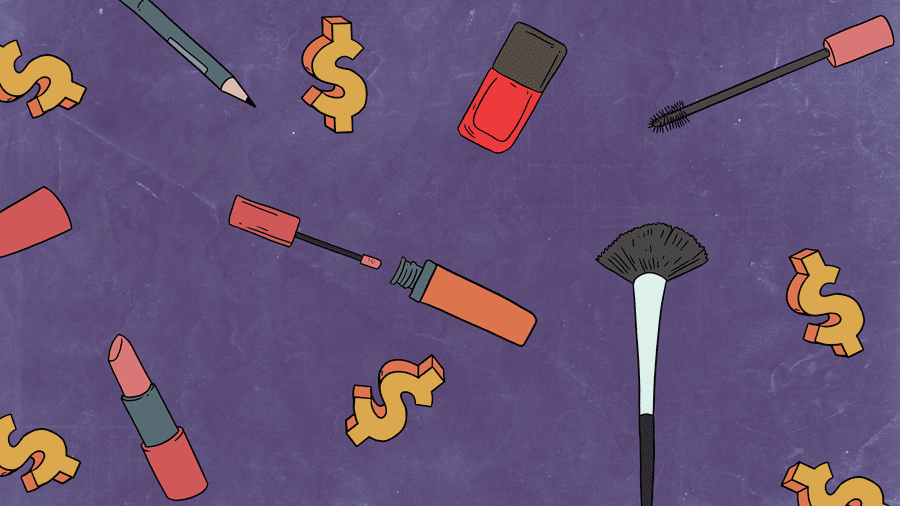If you’re still buying cosmetics at a department store makeup counter, you’re missing out on experiencing one of the biggest IoT categories in the Valley.
In recent years, “beauty startups” have helped shape one of the fastest-growing areas in tech, with innovative boutique brands raising round after round thanks to hyper growth and bullish investors. Some of these disruptive companies that come to mind are admittedly ones folks over the age of 40 (30?) have probably not even heard of… yet.
First up is Glossier—arguably the hottest cosmetic startup of the moment—which is said to be on the verge of an IPO thanks to its latest funding round. The $52 million Series C brought Glossier’s total valuation to $400 million in March. Not bad for a three-year-old brand born out of a beauty blog and known for relying heavily on social media and a virtual ambassador program. According to a SimilarWeb report, “Average monthly visits in Q4 2017 were three times higher than the same quarter in 2015.”
Not far behind Glossier is cult favorite Deciem—the Toronto-based umbrella company responsible for breakout (pun) skincare line The Ordinary—which has attracted funding from cosmetic giant Estée Lauder. Deciem, which declined to comment on the round for this story, is experiencing successful trickle down to its other subsidiary brands despite a PR crisis involving CEO Brandon Truaxe.
“I believe this is the coolest, most interesting category around right now,” Ross Blankenship, a venture capitalist at Angel Kings, told Crunchbase News. “The profit margins of beauty and cosmetics are so high, especially compared to perishables, which attracts investors to these fresh startups longterm.” Considering the long shelf life of cleansers and lipstick, it’s no wonder this crop of e-commerce startups are faring better than the likes of Blue Apron or Juicero.
And it’s not just the “big names” that are attracting millions in funding these days. Memebox, a former K-Beauty seller turned online product community, closed an impressive $60 million Series C round led by Formation Group, which brought the company’s total funding to nearly $100 million. The company’s aforementioned round came on the heels of its success using its online community to create cosmetic products that appeal to the coveted 18 to 34-year-old market, a spokesperson told Crunchbase News.
StyleSeat, an online marketplace that helps beauty and wellness professionals connect with clients, has found similar success. While its platform caters to beauty professionals’ needs, as opposed to consumers directly, there has been a massive transformation in this space, CEO Melody McCloskey told Crunchbase News. Styleseat helps consumers find a customized service, such as booking a stylist for a certain type of braid, in 15,000 cities since its launch in 2011.
“The beauty industry is looking for a more personalized way to empower its independent entrepreneurs,” McCloskey explained.
Cosmetics and grooming are naturally sticky categories. With the right strategy, these companies can use their massive funding to go to the next level, Blankenship explained.
Indeed, Glossier is set to open a flagship store in New York City and just opened a second in Los Angeles, implying on-the-ground expansion is on the horizon. Glossier could not be reached for comment for this story.
Even if taking the company public isn’t in the cards for those enduring in this category, exit prospects are still bright. Take, for example, Matchco, a San Francisco-based startup that allows consumers to scan their face to create a custom foundation for their exact skin shade. Matchco was quickly acquired by Tokyo-based Shiseido last year for an undisclosed sum.
For these “tech beauty” brands, appealing to millennials’ hunger for customizable, minimalist aesthetic is just the beginning, Blankenship explained. The trick is to quickly succumb to going public or a major liquidity event before someone like Amazon takes over the category. After all, with cosmetics being one of the categories more sensitive to consumer taste, it’s important to keep up with consumer needs in order to succeed long term.
Illustration: Li-Anne Dias

Stay up to date with recent funding rounds, acquisitions, and more with the Crunchbase Daily.










![Illustration of stopwatch - AI [Dom Guzman]](https://news.crunchbase.com/wp-content/uploads/Halftime-AI-1-300x168.jpg)
67.1K Followers